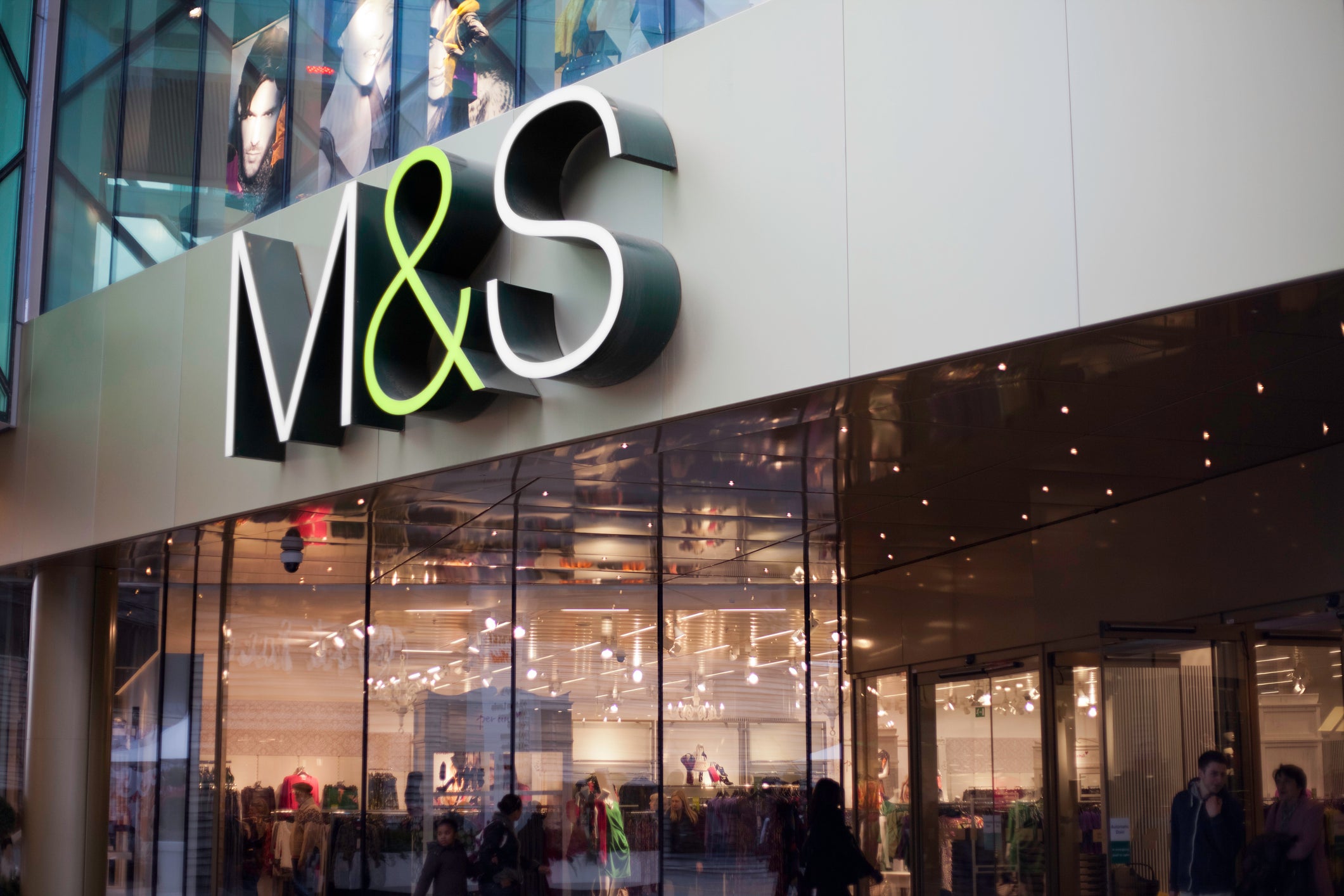M&S faces ejection from the top tier of British business – but are other big names set to follow?
The retailer, a member of the blue chip FTSE 100 index since 1984, is languishing at the bottom of the league table, writes James Moore


Is M&S about to be booted out of the FTSE 100? The index is preparing for one of its regular quarterly reshuffles, when the fastest-growing contenders from the second tier FTSE 250 are promoted and the slowpokes on the big board are sent down.
An analysis by broker AJ Bell suggests M&S, which has been a member since the index was created in 1984, is languishing above the trap door and, bar a miracle, will fall through it when the numbers are examined after the close of play on Tuesday.
The market value of a company is subject to constant change because of the way shares move up and down. Because of this volatility, to get relegated a company has to show it’s not just temporarily under the weather. It has to fall to beneath 111th position in terms of its market value to fall out. Valued at about £3.7bn M&S has a big red light flashing above its name.
Humiliating though it will be for the retailer, ejection from the blue chip index could actually be seen as a rather mild consequence of the tumult on the high street, certainly when set against what has happened to some of its rivals.
However, that analysis too easily lets the past directors and executives of M&S off the hook.
One of the reasons the chain has escaped the fate of the ghosts of retail is the extraordinarily strong franchise it had. However, that franchise has been in long-term decline, something a lot of executives on some very fancy packages have singularly failed to address.
FTSE 100 chair Archie Norman hit the nail on the head when he accused the company of “drifting” for 15 years towards the back end of 2017.
Yes it’s harder for large, and long established retail business with substantial estates of bricks and mortar stores, many in the wrong places, to move at the speed of newer and faster moving competitors.
But that doesn’t mean that it can’t be done. Retailers have dug themselves out of deep holes in the past and they will do so again.
In the meantime, relegation will have real consequences for Steve Rowe, the M&S boss who, in contrast to the tinkering of his predecessors, has decided that the way to end the retailer’s drift is to take radical action and place a big bet on selling food via the big money, and expensive, purchase of half of Ocado’s UK retail business.
Raising money on the capital markets for moves like that is often harder, and more expensive, in the second tier. Analysts pay less attention. Hell, everyone pays less attention.
But in the case of M&S, once the favourite soap opera of the financial press, a spell out of the spotlight and an adjustment to more modest circumstances may perversely help blow away the last vestiges of the perception of it as a hallowed British institution. That could have held Rowe’s predecessors back, although it does not excuse their failure (au contraire).
Rowe and his team will also be able to console themselves with the fact that their company is far from alone in contemplating the drop. British Gas owner Centrica and insurer Direct Line are similarly vulnerable household names. Sainsbury’s, another well known company with an outsize reputation that has disappointed of late, might soon be in a similar position. It won’t have escaped your attention that it’s a food retailer.
Join our commenting forum
Join thought-provoking conversations, follow other Independent readers and see their replies
Comments